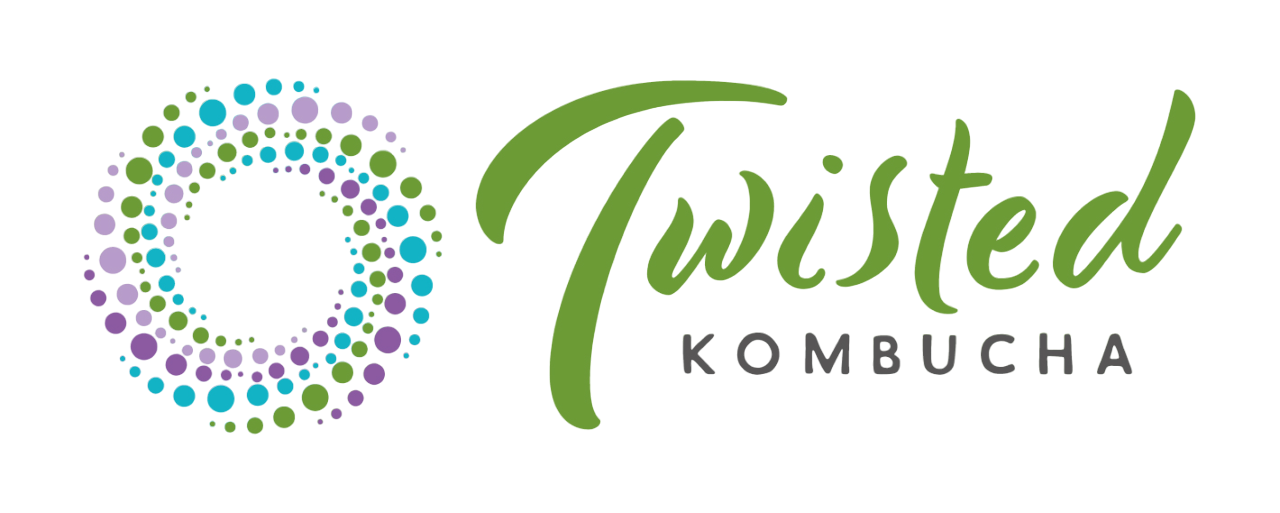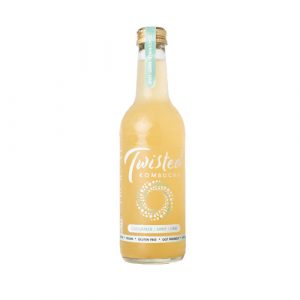Hey, it’s Lou here 👋! With World Menopause Day today, I wanted to talk about something close to my heart (and gut): how fermented foods can support women during menopause and perimenopause.
Menopause and perimenopause are natural phases in every woman’s life, but let’s be honest, it can come with some pretty big changes. Hormonal shifts can affect our brain, mood, energy, digestion, sleep, and even blood sugar balance. What I am always amazed at is just how much our gut health is connected to all of this. Many women look for microbiome support during menopause as hormonal changes affect gut health, digestion, and overall wellbeing. Fermented foods can play a powerful role in restoring balance.
Your gut is home to the estrobolome, the collection of gut bacteria that helps regulate or metabolise the estrogen levels. When your microbiome is out of balance, it can worsen symptoms like bloating, hot flashes, or fatigue. Nourishing your gut with fermented foods can help bring things back into balance.
Why Fermented Foods Matter
Fermented foods are full of live beneficial bacteria, organic acids, and bioactive compounds that help support your gut, digestion, and even hormone metabolism. During menopause and perimenopause, these benefits can make a real difference:
- Better digestion and reduced bloating – probiotics help maintain a healthy gut flora, improving how you digest and absorb nutrients.
- Mood and energy support – the gut-brain connection is powerful. A healthy microbiome can help your body produce more serotonin, supporting mental well-being.
- Hormonal balance – certain fermented foods (like miso and tempe) contain phytoestrogens that gently mimic estrogen in the body, helping to ease symptoms like hot flashes.
- Blood sugar balance – organic acids produced during fermentation, such as acetic acid, help stabilise blood glucose levels, which is especially important as metabolism changes through menopause.
Ferments We Love and Why They’re Supportive
🫧 Kombucha
Kombucha is a naturally fermented tea made from a culture of bacteria and yeast called a SCOBY. It’s rich in organic acids, enzymes, and live probiotics that help maintain a balanced gut microbiome and support smoother digestion.
During perimenopause and menopause, these compounds can help stabilise blood sugar levels, reduce bloating, and even support energy and mood through gut-brain connections The superstars in kombucha which alleviate against the symptoms of menopause are the diverse live cultures of yeast and bacteria, which are known to play a big role in hormone regulation. There are also some positive links to the probiotics in a fermented kombucha acting on reducing the symptoms of anxiety and depression which is heightened during this time.
Twisted Kombucha brews its drinks the traditional way, with no pasteurisation or shortcuts, allowing those beneficial live cultures to thrive. Each bottle is vegan, low in sugar, and made with 100% real and natural ingredients. This makes it a gentle everyday support for your gut during hormonal changes.
🍋 Fermented Soda
Fermented sodas are a refreshing way to introduce prebiotics into your diet – the fibres that feed the good bacteria already living in your gut. They’re light, naturally fizzy, and full of beneficial compounds that come from slow, natural fermentation. Avoid artificial sweetened ones with ingredients like stevia glycosides and sucralose – those sweeteners could play havoc with your bloating if you are already sensitive!
Supporting your gut’s prebiotic intake during perimenopause and menopause can improve digestion, regularity, and overall microbiome diversity, helping with hormone balance and energy levels.
Ferment Fizz, for example, makes naturally fermented sodas using fruit, prebiotic fibre, and no citric acid or additives. Drinks like Lemon & Raspberry or Orange & Mango bring a bright, bubbly way to nourish your gut and stay refreshed.
🍶 Miso
This traditional Japanese paste made by fermenting beans, grains, or seeds is especially valuable during perimenopause and menopause. It’s full of isoflavones, natural plant compounds that can gently mimic estrogen and help reduce symptoms like hot flashes, night sweats, and mood swings.
Because miso is fermented, these isoflavones become more bioavailable, meaning your body can absorb them more easily. It also provides essential minerals like magnesium, potassium, and calcium to support heart and bone health.
A great example is Umami Chef’s fava bean miso, made in the UK with traditional slow fermentation and unpasteurised for maximum benefit.
🌱 Tempeh
Tempeh is one of the most nutrient-dense ferments out there. Rich in protein, calcium, probiotics, and bioavailable isoflavones. It supports bones, muscles, and gut health while helping ease hot flashes. Contrary to common myths, moderate soy intake is safe and hormone-friendly, making tempeh a fantastic addition to any diet during perimenopause and menopause.
Unlike tofu, tempeh’s fermentation makes its nutrients easier to digest and enhances its probiotic potential. It’s a brilliant plant-based staple for women looking to stay healthy and balanced through this stage of life.
Protempeh, based in Cambridgeshire, produces fresh, organic, non-GMO tempeh each week. A perfect example of fermentation done the traditional, natural way.
🥬 Sauerkraut & Fermented Vegetables
Fermented vegetables, like sauerkraut, are a fantastic way to support digestion, nutrient absorption, and immunity. They’re packed with lactic acid bacteria, which keep the gut microbiome diverse and resilient. This is key during perimenopause and menopause as hormone changes can impact digestion.
Even just a few spoonfuls a day can improve gut comfort, reduce bloating, and help your body absorb vital minerals.
Alana’s Kitchen and Bizzy Bee’s Fresh Foods handcrafts delicious sauerkrauts and pestos using seasonal ingredients. This is the kind of simple, wholesome ferments that make everyday meals naturally supportive.
📖 Learning & Making your own
DIY Fermenting at home can be one of the most empowering ways to care for yourself, and it’s easier than it seems!
If you’d like to learn how, fermentation educator Anna Drozdova’s beautifully designed ebook, Magic of Fermentation, is a great place to start. It blends clear theory with practical recipes, from sauerkraut and yoghurt to chutneys and fermented soda, helping you understand the science and the magic behind these living foods.
If you’d like to take things a bit further, Ferment and Chill by Dr. Julia Skinner offers a self-paced online course that pairs fermentation projects with mindfulness and grounding practices. It’s a calm, creative way to explore this new season of life, caring for your gut and mind at the same time.
🎧 Lou’s Podcast Pick
If you’d like to learn more about perimenopause and how it impacts both body and mind, I’d really recommend giving this episode of The Dr. Louise Newson Podcast, featuring journalist and advocate Shelly Horton, a listen:
“Your Peri Godmother: Shelly Horton on surviving and thriving through perimenopause.”
It’s a warm and honest conversation about Shelly’s own perimenopause journey, from anxiety and exhaustion to finding the right support. She discusses why open dialogue, education, and compassion are so vital for women navigating hormonal change. An inspiring listen for anyone going through perimenopause or supporting someone who is.
The Bottom Line
Menopause and perimenopause are times of transformation, and taking care of your gut can help make the journey smoother. Fermented foods are more than a trend, they’re timeless tools for supporting digestion, mood, and hormone health.
From kombucha to miso, tempeh to sauerkraut, each ferment offers its own unique benefits and brings you a step closer to balance from the inside out.
✨ Here’s to nourishing our bodies, celebrating this new season, and honouring the power of fermentation this World Menopause Day.















